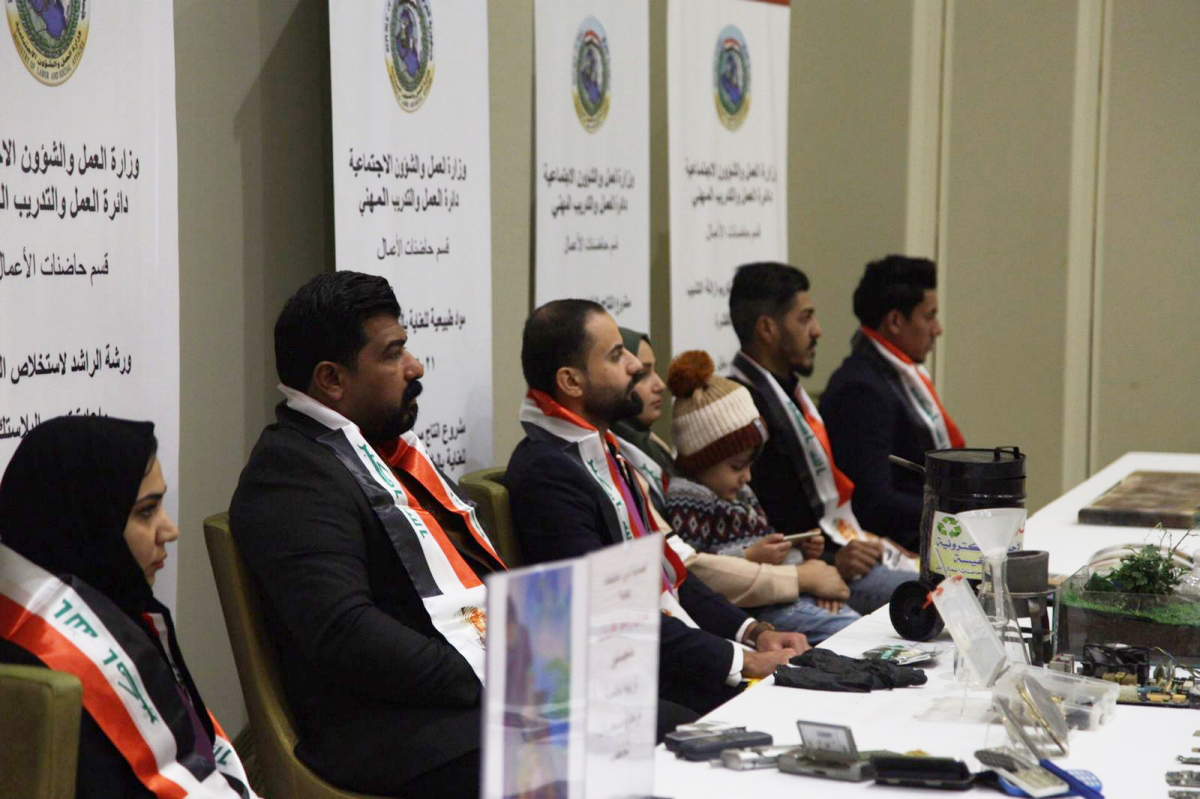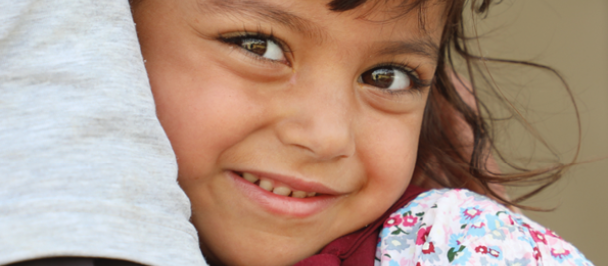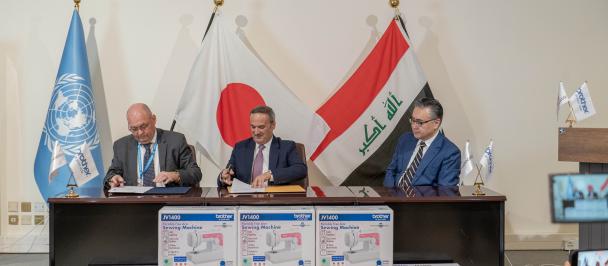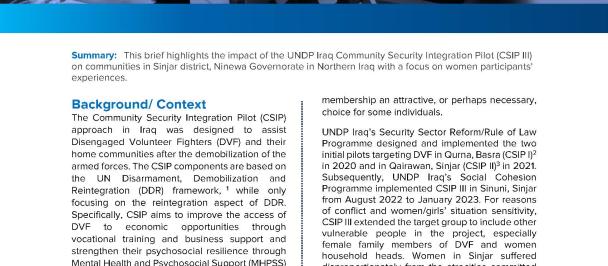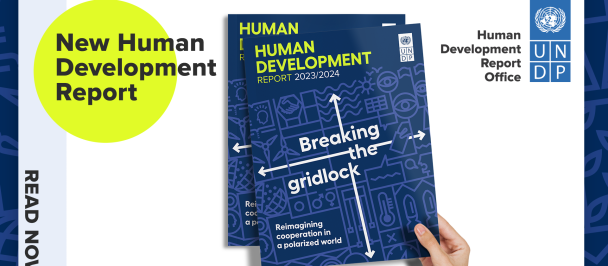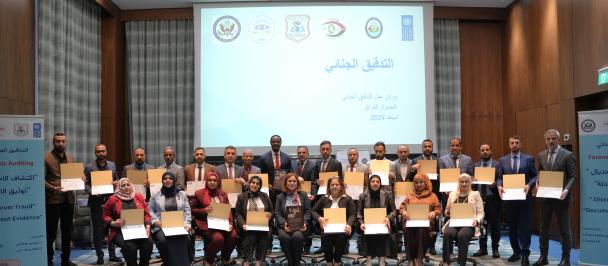Businesses on display at the exhibition held by MOLSA and UNDP. Photo: UNDP Iraq
Baghdad, 29 November 2021 – Over 35 small businesses from across Iraq gathered at an exhibition in Baghdad today. The event was a part of the joint efforts by the Federal Ministry of Labour and Social Affairs (MOLSA) and the United Nations Development Programme (UNDP) to boost small enterprises in the country.
The innovative businesses on display included a plastic and metal waste recycling initiative and a specialized education facility for people with disabilities to a home-grown solution to germinate seeds without soil. The business owners and managers from various industries presented their products and services and participated in peer-to-peer networking. They also used the event to identify potential investors and find new clients.
‘’It is our pleasure to partner with UNDP to host the businesses that were supported by MoLSA. At the exhibition today, I am delighted that we had over 35 innovative enterprises on display, said Dr. Abir Chalabi, Deputy Minister of MoLSA at the event.
“The overall goal of the exhibition is to create an enabling environment for small businesses to connect to their market and potential investors. At UNDP, we have significant plans to continue supporting small businesses in Iraq. The future of Iraq lies in the innovative solutions businesses develop, which creates more jobs and promotes a stable economy. This is the shared goal we are moving towards in close collaboration with MOLSA,” said Zena Ali Ahmad, Resident Representative of UNDP Iraq.
“I would like to thank our longstanding partner KfW Development Bank for their generous support in making this event happen. This is, of course, in addition to the generous support in other critical areas of UNDP’s operations such as stabilization, which is complimentary to this initiative we celebrate today,” she added.
The exhibition was organized by MOLSA and UNDP, with generous funding from the German Federal Ministry for Economic Cooperation and Development (BMZ), provided through KfW Development Bank.

 Locations
Locations